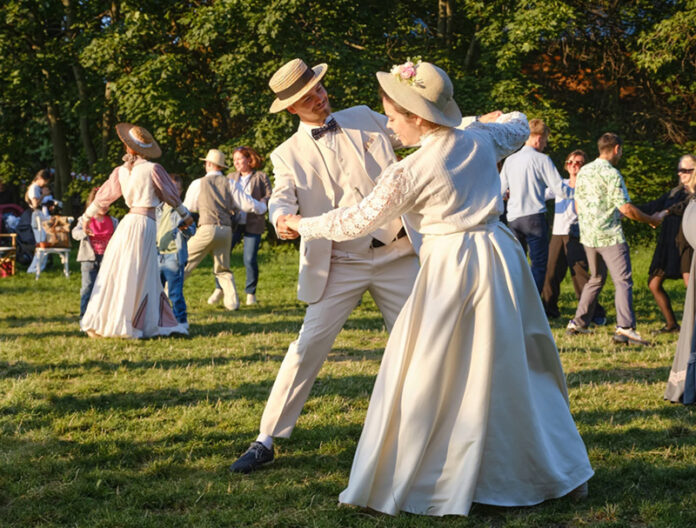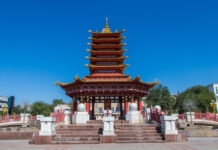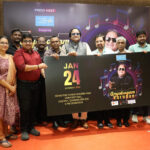Mansions of the 19th century nobility are an integral part of the cultural heritage of Moscow. Magnificent estates grew following the industrial upsurge of the country, which peaked at the end of the 19th century and took over the beginning of the 20th century. The old aristocracy as well as merchants and industrialists occupied the best houses in Moscow and the city outskirts. These were urban and country houses where life was always bustling. Now these buildings make up the cultural center of the city.
Today Moscow has the biggest number of mansions among European capitals and the city takes great responsibility when it comes to preserving this heritage for future generations. More than 60 historic estates have been restored over the past 12 years. The capital’s authorities plan to renovate another 74 mansions in the near future.
Apart from the restoration works, Moscow is reigniting traditions and breathing new life into old estates, organizing a large-scale Moscow Estates Festival that attracts the attention of both residents and tourists to the capital’s heritage. The festival introduces Moscow’s history in a new interactive and engaging format.
This year The Moscow Estates Festival was held for the 3rd time, and it was the largest one yet. In total, during the three months of the festival, held from June 15 till September 15, more than 3,000 events have been held at 40 venues – from historical picnics and performances to open-air concerts and modern musicals. Over 702,000 people have visited the third edition of the festival: both Muscovites and tourists from other cities and countries.
“While the Russian capital holds a big number of different festivals every year, the Moscow Estates is a special one. It represents a unique initiative to preserve cultural heritage in a metropolis. We are giving historical buildings a second life by fitting them into modern cultural context. We form a new leisure culture for our residents and city guests. We not only entertain, but also educate, inspire and suggest experiences and involvement in various formats, locations and at different levels of the project,” says Evgeniy Kozlov, Chairman of the Moscow City Tourism Committee.
After two successful seasons in summer 2023 and winter 2024, for its 3rd season the Moscow Estates Festival has kept its most popular activities. Thus, thematic lectures, excursions with the participation of famous guides, writers and journalists, thematic master classes and concerts have been made available to the public. All visitors were also able to take part in the historical games that entertained the residents of the estates centuries ago, or send a traditional postcard at one of the festival’s postal stations.
The Moscow Estates Festival, in addition to its most popular activities, also introduced 5 exciting new tracks. One of these tracks, called “Moscow of Alexander Pushkin”, celebrates the 225th birthday of the world-famous Russian writer and poet.
Another new track is Urban Dacha, which analyzes the phenomenon of a Russian countryside summer house called dacha. Theyare widely spread in Russia as vacation retreats where families enjoy nature, gardening and slow life outside of the city. At the turn of the 19th and 20th centuries all the Russian intellectuals and the creative class greatly appreciated the dacha lifestyle. Most masterpieces of Russian literature were born in dachas. Urban Dacha project invites visitors to discover the history and traditions of the 19th century dachas: to relax or meet a muse on verandas equipped with hammocks and wicker furniture, participate in summer balls, historical picnics, take gardening, handicrafts and herbarium workshops, and also enjoy chamber concerts and performances.
The Basmanny district and the Bauman garden became one of the centers of the Moscow Estates Festival. The district’s aura is distinguished by calmness and old-fashioned style with a fairly dense concentration of urban estates where famous Russian writers and poets of the 19th century lived and worked. The festival united 8 of the estates into a cluster that visitors could explore by following a special route with audio guides, audio performances or via an exciting city quest.
The Moscow Estates Festival is also remarkable for its large-scale projects. One of the highlights of the festival has been the musical “Treasures of an Ancient Manor”. For this performance, a “ghost estate” was built on the territory of a Moscow park complex. The magical scenery was created according to the drawings of a lost estate using transparent materials and light fixtures. The musical was performed for 2 weeks and attracted more than 5,000 visitors.
A number of Moscow estates have been selected as part of the festival for large-scale events. Thus, the Kuskovo estate held a carnival ball with dances combining historical and contemporary choreography. In Tsaritsyno estate an amazing open air classical music concerts were presented: a symphony No. 3 “Earth” performed by musician and composer Peter Dranga and a grand symphony orchestra and the opera performances based on legendary Russian and foreign fairy tales. And on the last weekend of the Moscow Estates festival, the Kolomenskoye Museum hosted a mini-festival with a packed day programme including creative master classes, historical games and dances and picnics, as well as concerts by famous musicians. Together they united in the programme “Neoclassics is Love!”.
Though the Moscow Estates Festival was held for only the third time, it seems that it’s already an integral part of the city’s life, fitting organically into the capital’s landscape. The organizers masterfully utilized the space of local manors and manor parks. The secret lies in the brilliant combination of advanced leisure management with Moscow’s historical traditions. This approach offers people of all ages high quality leisure opportunities, including walking, socializing, and opportunities for self-development. All the events of the rich cultural and entertainment program were free of charge, and the festival was instrumental in motivating city residents and tourists to discover Moscow and its heritage.
















